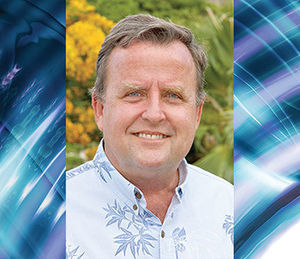Almost daily someone I run into on the street, at the airport or perhaps at the dog park will lament the demise of civility in public discourse. They often are filled with a deep angst over the tension and sometimes
Almost daily someone I run into on the street, at the airport or perhaps at the dog park will lament the demise of civility in public discourse. They often are filled with a deep angst over the tension and sometimes anger tinged conversations they view on social media, television and often even on the bumper sticker of the car preceding them in traffic.
I agree, each of us should take a deep breathe and think about what we say, or do, or type onto a key board as we act on or react to the issues and circumstances we confront each day.
Before we “put someone on blast,” whether on social media, at a public hearing, or perhaps in a letter-to the-editor, we need to first hit the pause button and reflect.
Tip: Resist and avoid at all costs snarkiness, sarcasm, name calling, personal denigration, questioning of integrity, personal intentions or references to physical appearance.
Too often, too many of us personalize the issue and attack the messenger rather than the message. Just because a person supports a real estate development for example, does not mean they are “in bed with the developers.” They might be. But they might also simply see the world through a different lens. They may actually believe that the development would yield community benefits exceeding the negatives the opponents present.
They may be wrong in their position, but they are not necessarily bad or corrupt.
I believe that different people, smart people with good hearts and noble intentions, can look at the same facts and circumstances and come to different conclusions.
We can disagree vehemently and we should, but our target should be the facts, the circumstances and the expected outcomes, and not the person. If the person takes actions that we believe are inept, unprofessional or harmful to the public good, then we can and should call them out publicly on their actions but not question what is in their heart.
In the context of government and public policy, my experience leads me to believe that most in leadership positions (elected or appointed) are trying to “do the right thing” as determined via the lens of their own individual life experience.
Yes, there is outright corruption and there are people in positions of power, who in my opinion, have a flawed moral compass. But the majority of individuals who hold public office I believe are in fact good people who perhaps just look at the world differently.
The refrain that “all politicians are corrupt” runs deep through the trenches of both the left and the right. I suspect many will disagree, and perhaps loudly so, with my belief that most in public office are trying to do the right thing.
Yes, corruption in the literal sense exists but I believe it is the exception not the rule. Mostly I would consider the problem one of institutional corruption and having a political system built upon the inherently corrupting and increasing demand of campaign donations.
The answer to our quest for a better government is not the personal and public denigration of those who hold public office or who might disagree with us, but rather in confronting the issue at hand with facts, persistence and professionalism. Sometimes being loud and having great numbers in attendance is important, but always the message should be presented to address the issue and not tear down the person.
If the elected official still does not respond to reason, facts, and community sentiment, then find a candidate to run against him or her. Or better yet, run yourself.
•••
Gary Hooser formerly served in the state Senate, where he was majority leader. He also served for eight years on the Kauai County Council and was the former director of the state Office of Environmental Quality Control during Gov. Neal Abercrombie’s administration. He serves presently in a volunteer capacity as board president of the Hawaii Alliance for Progressive Action and is the volunteer executive director of the Pono Hawaii Initiative.


